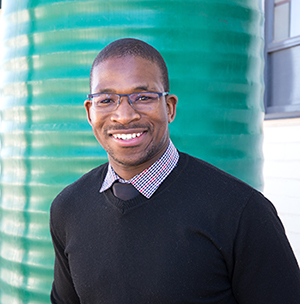Latest News Archive
Please select Category, Year, and then Month to display items
02 November 2023
|
Story Kekeletso Makau
|
Photo SUPPLIED
 The UFS Heads of Mission Breakfast event attracted a distinguished delegation of foreign diplomatic missions.
The UFS Heads of Mission Breakfast event attracted a distinguished delegation of foreign diplomatic missions.
The second Heads of Diplomatic Mission breakfast was hosted by the University of the Free State (UFS) in collaboration with the Mapungubwe Institute for Strategic Reflection (MISTRA) in Pretoria, South Africa on 26 October 2023.
The event served as an opportunity to position the UFS as a preferred partner for international collaboration in higher education, research, and innovation – following the success of the inaugural event in 2022. More than ten diplomatic missions were represented by distinguished foreign mission representatives who shared in the deliberations on this year’s theme, namely partnerships and collaborations.
The keynote address was delivered by the UFS Vice-Chancellor and Principal, Prof Francis Petersen, with contributing presentations from MISTRA researcher Laurence Caromba, UFS Professor of Pharmacology, Prof Motlalepula Matsabisa, and Senior Lecturer from the Centre for Gender and Africa Studies, Dr Grey Magaiza. A key goal of Prof Petersen’s presentation was to highlight the benefits of reciprocal collaboration and co-creation of knowledge with international partners, including industry partners. Contributing presentations posited the UFS as a partner of interest in research, innovation, and technology in the international arena and showcased the value of university and diplomatic partnerships in support of the UFS Internationalisation Strategy and Vision 130.
Caromba, a MISTRA researcher, reiterated the importance of collaboration between universities, research institutes, and the diplomatic community, further reaffirming the partnership value proposition entrenched in the UFS-MISTRA collaboration in co-hosting this year’s event. MISTRA, a renowned influential think tank, served as an excellent partner for the event.
The UFS currently boasts more than 100 vibrant international partnerships and is the incumbent coordinator of large EU-funded Erasmus+ projects among South African universities, with UFS researchers having co-authored more than 5 000 scientific publications with universities worldwide (2018-2022).
An engaging question-and-answer session concluded with insights and further action items for continued engagement post the event.
University of the Free State strives towards going ‘green’
2017-08-07

Benedict Mochesela from University Estates on the
UFS Bloemfontein Campus. A total of thirty brand-new
water storage tanks, between 5 000 and 20 000 litres,
were installed.
Photo: Anja Aucamp
Eight provinces, including the Free State, were declared disaster areas last year due to the ongoing drought. This had a devastating effect on the agricultural sector, leaving many communities dry.
University Estates at the University of the Free State found an ideal project to make university buildings greener. A total of thirty water storage tanks, varying in size from 5 000 to 20 000 litres, were installed at various buildings on the Bloemfontein Campus. As a pilot phase, these tanks were specifically installed at residences and buildings with high traffic volumes.
Importance of water tanks at the UFS
According to Benedict Mochesela, Project Manager of this initiative, the purpose of the project is to harvest rainwater, which will be used during emergencies when the campus does not have water and the emergency water storage facility is depleted. “This water is not intended for drinking, but for the flushing of toilets,” says Mochesela.
He mentioned that the water will also be used for watering flowerbeds and gardens when the water has been standing for a long time without being used.
Recycling water: An initiative to protect the environment
A number of water storage tanks are already in place at the Qwaqwa Campus and a preliminary phase of using grey water from residences is currently ongoing at the South Campus. Grey water is made up of bath, shower, and bathroom sink water. The water is reused for toilet flushing as well as for irrigation purposes.
“Recycling of water is one of a number of initiatives the university intends to undertake to ensure and show the community that this institution remains conscious of the environment and to changes which we continuously need to adapt to.”